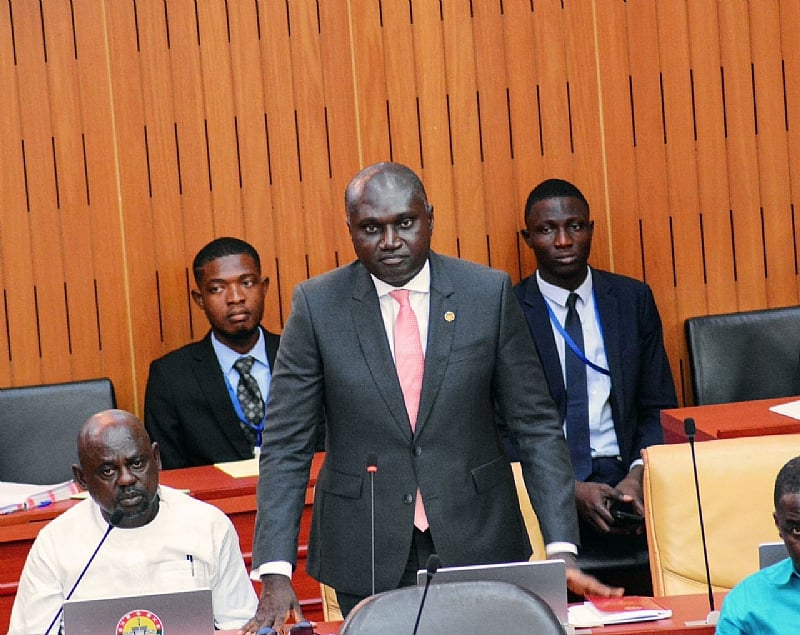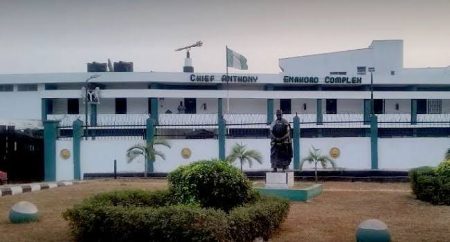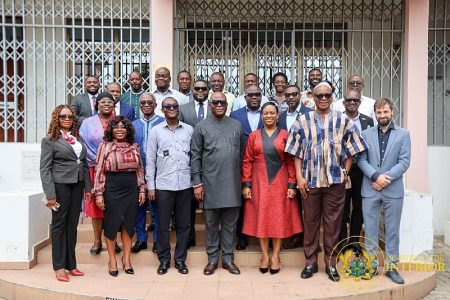The discontinuation of the financial crimes case against former Finance Minister Dr. Kwabena Duffuor and seven others has sparked a heated debate in Ghana, raising concerns about the government’s approach to combating corruption and financial malfeasance. The case, which stemmed from the collapse of uniBank, was dropped by Attorney General Dr. Dominic Ayine, citing a “substantial recovery” of approximately 60% of the alleged losses. This decision, framed within the Mahama government’s anti-corruption initiative, Operation Recover All Loot (ORAL), has been met with sharp criticism from various quarters, including Members of Parliament and legal scholars. The core of the contention lies in the perceived leniency extended towards Dr. Duffuor and the other accused individuals. Critics argue that accepting partial repayment in lieu of a full legal process, including trial and potential conviction, sets a dangerous precedent and undermines the fight against corruption.
Member of Parliament for Abirem, Charles Owiredu, has strongly condemned the government’s decision, characterizing it as making “crime profitable.” He questioned the rationale behind accepting a 60% recovery when, according to him, Dr. Duffuor was prepared to repay the full amount. Owiredu’s criticism reflects a broader concern that the government’s focus on recouping funds, while laudable, should not come at the expense of pursuing justice and holding perpetrators accountable. The implication is that such an approach may inadvertently encourage future financial crimes by signaling that individuals can escape full legal consequences by simply returning a portion of the misappropriated funds. This, in essence, transforms financial crimes into a calculated risk rather than a punishable offense.
Professor Stephen Kwaku Asare, a renowned legal scholar, echoed these concerns, arguing that the dropping of charges contributes to a growing culture of impunity. He warned that bypassing trials and convictions in exchange for partial repayments creates a dangerous precedent, essentially signaling that financial crimes are “risk-free activities.” Prof. Asare’s argument hinges on the principle that justice requires not only the recovery of stolen funds but also the punishment of those responsible. The absence of trials and convictions, he contends, undermines the deterrent effect of the law and emboldens potential offenders. This, in turn, creates a moral hazard where individuals may be more inclined to engage in financial malfeasance, knowing that they can negotiate their way out of legal consequences.
The central issue at stake is whether the government’s priority should be solely on recovering lost funds or also on ensuring accountability through the legal process. While the recovery of public funds is undeniably important, critics argue that it should not overshadow the equally crucial objective of upholding the rule of law and deterring future crimes. The concern is that by prioritizing financial recovery over legal prosecution, the government inadvertently creates a system where financial crimes are treated as mere financial transactions, rather than serious offenses with significant societal consequences. This approach risks undermining public trust in the justice system and eroding the integrity of financial institutions.
Furthermore, the lack of transparency surrounding the negotiation process and the criteria for determining the acceptable percentage of repayment raises concerns about potential abuse and selective application of justice. The absence of clear guidelines and publicly accessible information allows for speculation and accusations of favoritism, further eroding public confidence in the government’s commitment to combating corruption. The perception that individuals with political connections or financial influence can negotiate more favorable outcomes undermines the principle of equality before the law and reinforces the notion that the justice system is susceptible to manipulation.
In conclusion, the decision to drop charges against Dr. Duffuor and others in exchange for partial repayment raises fundamental questions about the government’s approach to tackling financial crimes. While the recovery of funds is a positive outcome, it should not supersede the pursuit of justice and the establishment of a strong deterrent against future offenses. The concerns raised by critics highlight the potential for this approach to foster a culture of impunity and undermine public trust in the legal system. Moving forward, a more balanced approach is needed, one that prioritizes both financial recovery and legal accountability to effectively combat corruption and strengthen the rule of law. This requires establishing clear guidelines for negotiating settlements, ensuring transparency in the process, and upholding the principle that all individuals, regardless of their position or influence, are subject to the same legal standards.














